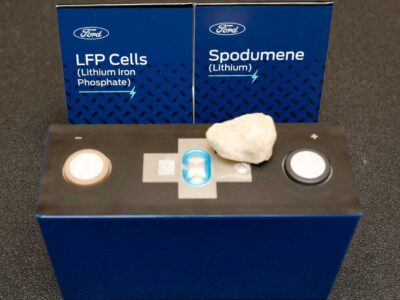
While you can expect every new car to have routine maintenance costs, unexpected breakdowns can be frustrating. Fortunately, all major car manufacturers back their vehicles with a factory warranty: a promise to cover the cost of repairs if a part malfunctions during the early years of ownership.
To make the most of the manufacturer’s warranty, it’s essential to know what is covered and for how long. Although covered breakdowns are similar across manufacturers, the duration of coverage can vary widely. This guide will review the factory warranty coverage for major car manufacturers and explain how to check if your car is still covered by the original warranty.
All factory warranties eventually expire, but you can stay protected in the long term with an extended car warranty from your manufacturer or an independent warranty provider.
What is a new vehicle’s factory warranty?
A factory warranty is a manufacturer’s promise to repair or replace vehicle parts that fail due to incorrect installation or defective workmanship. This typically includes breakdowns not resulting from an accident, improper use, or lack of maintenance.
Generally, all car brands provide a limited warranty for new vehicles, lasting between three and 10 years, depending on the brand. Most car manufacturers include longer and separate coverage for the powertrains of vehicles, which consist of components and systems like the engine, transmission, transfer case, and transaxle. All other vehicle parts are usually covered by a shorter warranty.
While each factory warranty is different, most have similar rules and guidelines. For instance, you’ll be required to maintain your vehicle according to the manufacturer’s recommended maintenance schedule to keep the warranty valid. A factory warranty doesn’t cover regular maintenance items, such as scheduled inspections and oil and tire changes at certain intervals or mileage.
If your car breaks down, you must take it to an authorized service center or dealership for diagnosis and repair. Factory warranty coverage won’t be accepted anywhere other than an authorized service center or dealership.
A certified mechanic will diagnose the problem and repair your vehicle, and the manufacturer will foot the bill. Note that not all breakdowns may be covered.
A factory warranty is generally divided into several individual warranties, although some manufacturers, often luxury car makers, include all warranty coverage under a single umbrella.
What is excluded from the factory warranty?
Not all parts of your car are covered by a factory warranty. Damages resulting from an accident, maintenance, or improper use are not covered. Also commonly excluded from the manufacturer’s warranty are non-mechanical parts (such as upholstery) or wear items expected to deteriorate with regular use (like brake pads, windshield wipers, shock absorbers, bulbs, and more).
To check if your vehicle is still under the factory warranty, consult the warranty booklet that came with the purchase of your new car. Assuming you have kept up with oil changes, and your car is within the warranty period, it should still be covered.
If you can’t find your warranty booklet, you can verify your car’s warranty status by contacting a dealership. Make sure to have your vehicle identification number (VIN) on hand. Most manufacturer warranty coverage is transferable to new owners, so even if you’re buying a used car, it may still be covered by the original factory warranty.
When your car’s factory warranty expires, you can extend your vehicle’s protection with an extended warranty. Most manufacturers sell extended warranties that offer similar protection to the factory warranty. These are sold through dealerships and generally need to be purchased when you buy your vehicle. It’s essential to note that these are not actual warranties but rather vehicle service contracts.
You can also obtain a vehicle service contract from an independent company. Third-party contracts offer similar coverage but typically at a lower cost and for longer terms.
Are extended car warranties worth it?
Most of the time, the cost of an extended car warranty will exceed what you pay for covered repairs. Due to this, it might be a better financial move to save money for potential repairs yourself. However, many drivers still prefer to purchase an extended warranty because it provides peace of mind that if a particularly expensive breakdown occurs, the cost will be covered. Extended warranties also help you budget for repairs over time, and unlike a personal savings account for car repairs, you can’t dip into the money if another bill arises.







